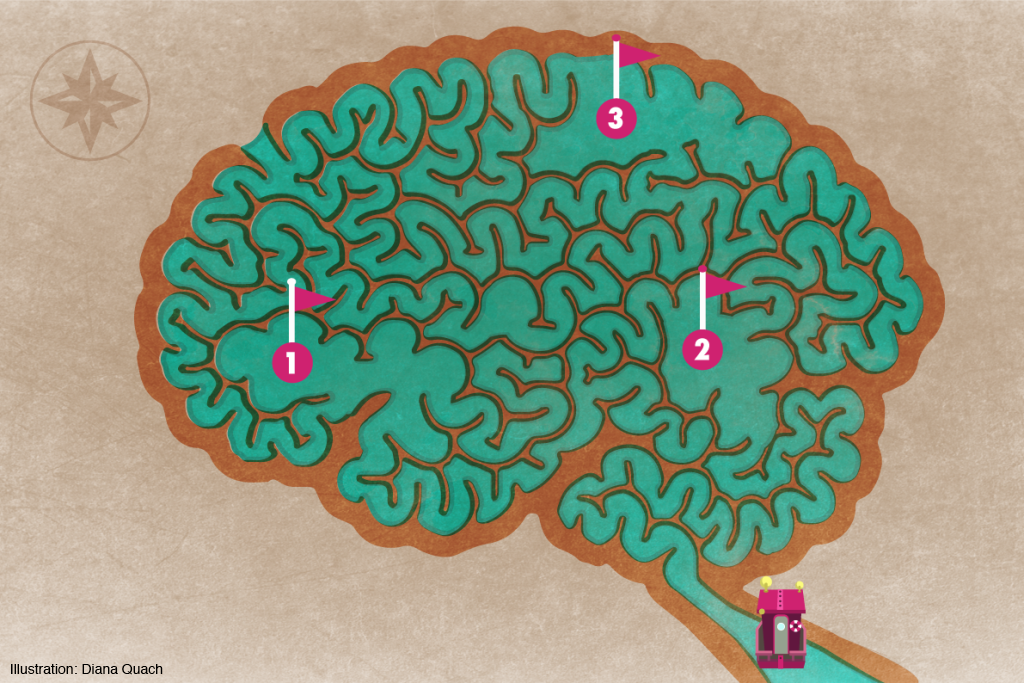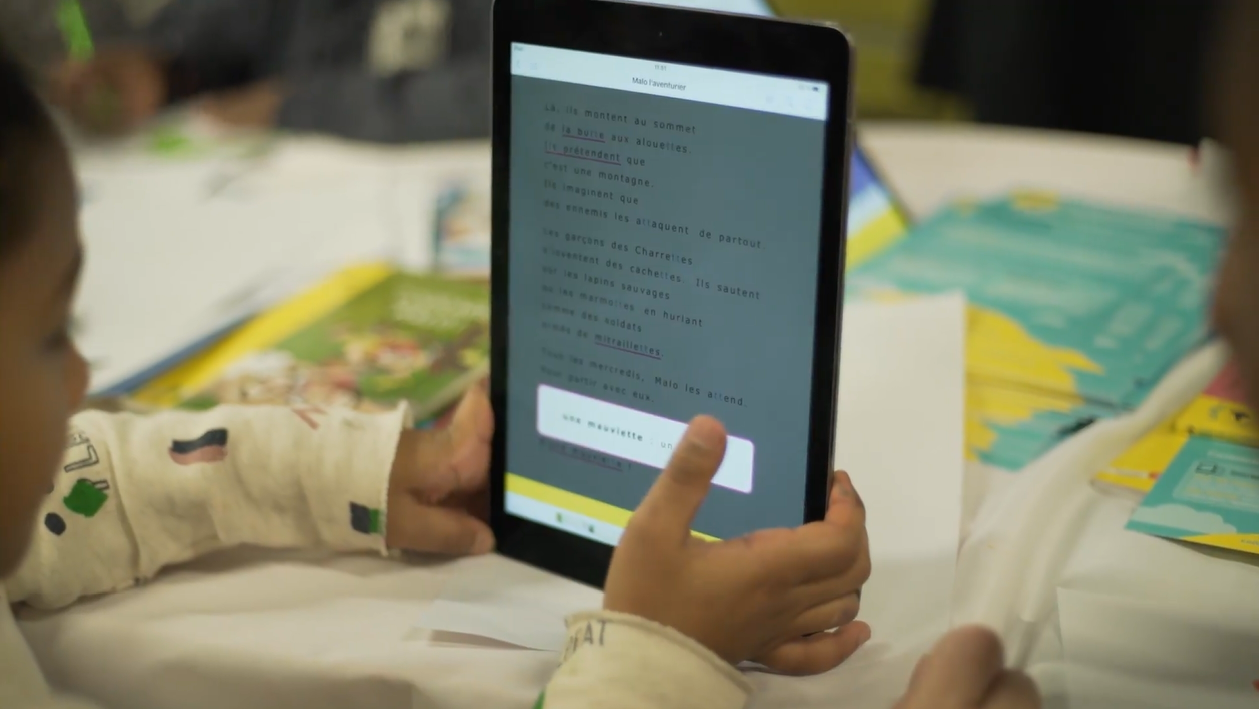In 2018, Ouest Industries Créatives launched two calls for research projects relevant to its thematic scope: scientific evaluation of the user experience and design of hybrid scientific and creative experiments.
Five regional research projects, conducted by partner institutions, have received joint funding through the annual call for research projects and additional funding scheme for theses.
CaDySiT – Capturing the dynamics and peculiarities of trajectories
By focusing on machine-learning approaches, this project aims to capture the distinctive strategies that humans adopt to explore their environment. It is based on analysis of a worldwide database of more than 4 million spatial trajectories (collected via the Sea Hero Quest computer game) – one of the largest databases of human behaviour developed for the purposes of research.

The project is led by Antoine Coutrot (LS2N, CNRS).
It has received funding from RFI OIC and Atlanstic2020 for a “thèse environnée”. Funding body: Région Pays de la Loire
HOMERIC – Hybridization of methods for modelling experience in interactive systems
The purpose of this project is to design and produce concepts, methods and models in order to study user experiences of virtual reality. It combines qualitative and quantitative approaches and places particular focus on first and third person experiences.
There are two parts to the project: an interdisciplinary working group comprised of researchers specialising in the interaction between humans and machines, quality of experience, psychology and psychiatry, and data processing and analysis, will measure and model user experience. This will be followed by supervision of a post-doctoral thesis on the notion of affordance and salience in modelling the experience of interaction in the field of health and psychopathological assessment.
HOMERIC is led by Toinon Vigier (LS2N, Université de Nantes). The SPHERE laboratory (INSERM) is also involved.
The project has received support from RFI OIC to jointly fund a “post-doctorat environné”. Funding body: Région Pays de la Loire, Université de Nantes, CHU de Nantes.
Heritage status for modern music: scope, practices and challenges in a joint, region-wide project
For some years now, initiatives to acquire heritage status for modern music have been gaining momentum in the Pays de Loire, other French regions and abroad. This research project aims to bring clarity to the phenomenon of heritage status, particularly in the Pays de Loire, in order to help stakeholders on the ground to develop projects.
It places particular attention on the notion of experience that comes into play in the process of building a case for heritage status for modern music (individual and collective memory, affect, desire to pass on, etc), and the role and use of digital media (especially for creating a shared virtual space for collecting and raising the profile of the components that form this heritage).
The project is led jointly by Nathalie Schieb-Bienfait (LEMNA, Université de Nantes) and Sandrine Emin (GRANEM, Université d’Angers), in partnership with the CIM-MCPN (Université Paris 3 Sorbonne Nouvelle).
It has received support from RFI OIC to jointly fund a “thèse non-environnée”. Funding body: Région Pays de la Loire, Université de Nantes.
RESET – Networks, Cultural Scenes, Technological Scenes: the measure of spillover effects
RESET aims to develop understanding of how formal and informal networks, forged between stakeholders in a given setting, thrive on the urban environment in which they are embedded.
It involves a comparative analysis of the emergence of the technological and cultural scenes in Nantes, Austin and Montréal; and an interdisciplinary, economics and digital sciences research project designed to develop tools and methodologies for the analysis of multiplex networks.
RESET is led by Professors Dominique Sagot-Duvauroux (GRANEM, Université d’Angers) and Raphaël Suire (LEMNA, Université de Nantes), in partnership with LS2N (Université de Nantes). It is linked to the SCAENA project which is funded this year by the ANR.
The project has received support from RFI OIC to jointly fund a “thèse environnée”. Funding body: Région Pays de la Loire, Nantes Métropole, Université d’Angers, Université de Nantes.
XpliciT – Making texts explicit to users
The objective of XpliciT (making texts explicit to users) is to develop a way to automatically identify and clarify difficulties stemming from implicit information in a digital text, in order to facilitate readers’ understanding.
Once the information in need of clarification has been identified, explanations will be offered to readers through user-friendly interfaces. One of the challenges therefore is to find ways to facilitate interaction and display information, to support overall comprehension of the text, without disrupting the reading experience.
XpliciT is jointly led by Solen Quiniou (LS2N, Université de Nantes) and Grégoire Cliquet (READi Design Lab, École de Design Nantes Atlantique).
The project has received support from RFI OIC to jointly fund a start-up activity. Funding body: Région Pays de la Loire, Université de Nantes, École de design Nantes Atlantique.



